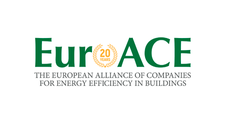Search eceee proceedings
A smart and sustainable vision when assessing a smart urban renovation project: an application example
Panel: 5. Smart and sustainable communities
This is a peer-reviewed paper.
Authors:
Stanislas Nösperger, EDF - RD, Département TREE, France
Nicolas Damesin, EFFICACITY, France
Cédric Chenot, EUROPOLIA, France
Valérie Furio, Toulouse School of Economics, France
Abstract
Smart and sustainable urban districts are key to address the challenge raised by cities’ impact on climate change. First, they foster energy mutualisation and optimal use at a district space; secondly, they enable the integration of thermal and electric renewable energy sources (RES). However, smart district projects lead to increased up-front costs that related energy savings cannot payback alone. However, such projects generate non-energy impacts which are very seldom taken into account in the economic assessment, although they are underlined in academic studies.
This paper proposes an operational assessment of potential co-benefits of a real smart energy project for an urban district currently under renovation and extension. The project considers a partial or total integration of thermal RES in a district heating and the integration of a collective renewable power production capacity.
The hereafter presented assessment process focuses on four main impacts, each of them on a specific relevant territorial scale. Two impacts are macro-economics at a regional scale:
– direct, indirect and induced employment impacts related to the different district energy planning scenarios; and
– employment impacts of the reintroduction in the economy of the saved energy expenses assessed in each scenario compared with the reference scenario.
Health impact is considered at the city or district scale and is related to the implementation of energy-recovery from train braking technologies leading to the substitution of PM-emitting braking solutions by cleaner ones.
Finally, the monetized CO2 emissions related to energy consumptions are considered at a world wide scale. Such operational economic assessment of non-energy benefits supports political decision which are very seldom based on the sole consideration of mere financial payback from energy efficiency. However, the valuation of created or maintained jobs remains controversial and needs further discussion.
Downloads
Download this paper as pdf: 5-048-19_Noesperger.pdf
Download this presentation as pdf: 5-048-19_Noesperger_Presentation.pdf
Panels of
1. The dynamics of limiting (energy) consumption
2. What's next in energy policy?
4. Monitoring and evaluation for greater impact
5. Smart and sustainable communities
7. Make buildings policies great again
8. Buildings: technologies and systems beyond energy efficiency
9. Improving energy efficiency in ICT, appliances and products

























